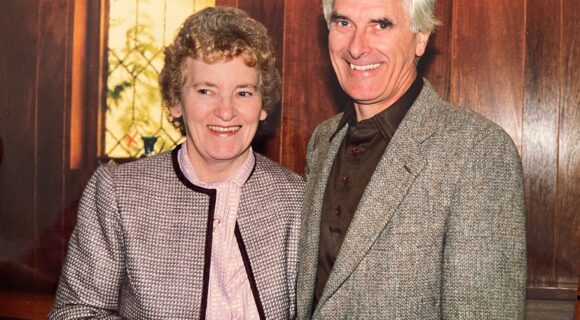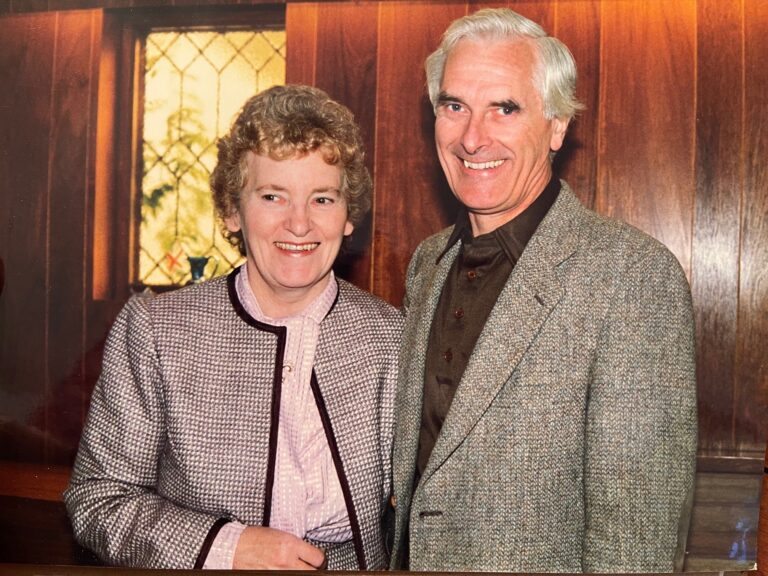Since April is Parkinson’s Awareness Month, we thought we’d sit down with one of our Neurologists here at Surrey hospitals to learn more about the Movement Disorder Clinic at the Jim Pattison Outpatient Care and Surgery Centre (JPOCSC). We were fortunate to speak with Dr. Claire Hinnell, one of the physician members of the Movement Disorder team and a Clinical Assistant Professor at the University of British Columbia, who gave us an inside look at the holistic approach taken by our hospital staff in providing care to patients with Parkinson’s.
The Growing Need for Parkinson’s Care
There are approximately 100,000 people with Parkinson’s disease in Canada, with 15,000 of those in British Columbia alone. Approximately 1-2% of people over the age of 65 have Parkinson’s, with that number jumping to 3-5% for those over the age of 85. But even beyond that, up to 20% of those with Parkinson’s disease develop symptoms before the age of 60.
With our ever-growing population in Surrey, and with the Baby Boomer generation now in the 60+ range, even the single digit percentages mentioned above account for a high demand for Parkinson’s care.
The clinic at JPOCSC plays a vital role in delivering Parkinson’s care to the province as it is one of only a select few such clinics in all of British Columbia. As a result, it not only serves Surrey but the whole Fraser Health region.

A Holistic Care Approach
The guiding philosophy for the Movement Disorder Clinic at Surrey hospitals is that it takes a team to provide excellent patient care. Parkinson’s disease affects more than just a patient’s body. It also affects their entire person and the lives of their family and community.
So, from the moment a referral comes into the clinic, all the way through their interactions with the nurse, the movement disorder specialist, and beyond; each team member is on the lookout for any signs or symptoms that can affect every other domain of care. The result is that nurses, doctors, physiotherapists, social workers, speech language pathologists and occupational therapists all work together to anticipate and care for a patient’s overall well-being as well as support their family and care providers along the journey.
Equity and Culturally-Sensitive Care
In our discussion, Dr. Hinnell mentioned that one area where the Movement Disorder Clinic is still learning and growing is around culturally-sensitive care. Because of the ever-changing demographics of our health care region, there is always room to improve how we understand our patients and how to provide the best possible care that recognizes and celebrates everyone’s unique perspective and values.
For example, in the case of Parkinson’s disease, cultural groups differ in where along the disease spectrum they choose to seek care for themselves or a family member. This could be due to a variety of factors, including: sense of familial interdependence and care, awareness of the symptoms of Parkinson’s disease, or cultural norms and expectations for aging family members.
There are cultural differences in approach to medical therapy and advanced Parkinson’s disease care, too. The Movement Disorder team works to ensure the patient and family are supported along the spectrum of the disease including towards the end of life in ways that are consistent with patient and family values.
In every situation, the goal for Dr. Hinnell and her team remains the same—to provide the best possible care and to aim for the best possible outcomes while meeting the unique needs and challenges of every patient and patient family that comes to their door.

Parkinson’s Awareness
A huge thank you to Dr. Hinnell for taking the time to chat with us so we could learn more about the Movement Disorder Clinic at JPOCSC. Since it is Parkinson’s Awareness Month, we encourage you to learn more about the disease. You can visit the following sites to do so:
You can also make a donation today to support life-changing health care at Surrey Memorial Hospital.



